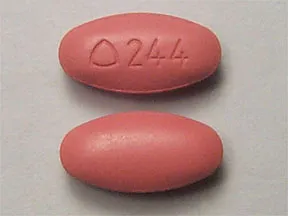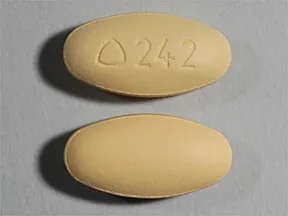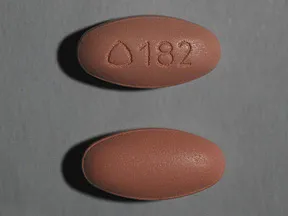Uses
This product is used to treat high blood pressure. Lowering high blood pressure helps prevent strokes, heart attacks, and kidney problems. This product contains 2 medications: trandolapril and verapamil. Trandolapril belongs to a class of drugs known as ACE inhibitors. Verapamil belongs to a class of drugs known as calcium channel blockers. They both work by relaxing blood vessels so blood can flow more easily. Verapamil may also lower your heart rate.
How to use Tarka
Read the Patient Information Leaflet if available from your pharmacist before you start taking trandolapril/verapamil and each time you get a refill. If you have any questions, ask your doctor or pharmacist.
Take this medication by mouth with food as directed your doctor, usually once or twice daily. Swallow the tablets whole. Do not crush or chew the tablets. Doing so can release all of the drug at once, increasing the risk of side effects.
The dosage is based on your medical condition and response to treatment.
Take this medication regularly to get the most benefit from it. To help you remember, take it at the same time(s) each day. Keep taking this medication even if you feel well. Most people with high blood pressure do not feel sick.
Do not stop taking this medication without consulting your doctor. Some conditions may become worse when this drug is suddenly stopped. Your dose may need to be gradually decreased.
It may take up to several weeks before you get the full benefit of this medication.
Tell your doctor if your condition does not get better or if it gets worse (your blood pressure readings remain high or increase).
Side Effects
Dizziness, lightheadedness, or tiredness may occur as your body adjusts to the medication. Dry cough, constipation, or nausea may also occur. If any of these effects last or get worse, tell your doctor or pharmacist promptly.
To reduce the risk of dizziness and lightheadedness, get up slowly when rising from a sitting or lying position.
Remember that this medication has been prescribed because your doctor has judged that the benefit to you is greater than the risk of side effects. Many people using this medication do not have serious side effects.
Tell your doctor right away if you have any serious side effects, including: fainting, new or worsening symptoms of heart failure (such as shortness of breath, swelling ankles/feet, unusual tiredness, unusual/sudden weight gain), symptoms of a high potassium blood level (such as muscle weakness, slow/irregular heartbeat), signs of kidney problems (such as change in the amount of urine).
This drug may rarely cause serious (possibly fatal) liver problems. Get medical help right away if you have any symptoms of liver damage, including: nausea/vomiting that doesn't stop, loss of appetite, stomach/abdominal pain, yellowing eyes/skin, dark urine.
A very serious allergic reaction to this drug is rare. However, get medical help right away if you notice any symptoms of a serious allergic reaction, including: rash, itching/swelling (especially of the face/tongue/throat), severe dizziness, trouble breathing.
This is not a complete list of possible side effects. If you notice other effects not listed above, contact your doctor or pharmacist.
In the US -
Call your doctor for medical advice about side effects. You may report side effects to FDA at 1-800-FDA-1088 or at www.fda.gov/medwatch.
In Canada - Call your doctor for medical advice about side effects. You may report side effects to Health Canada at 1-866-234-2345.
Warnings
Trandolapril can cause serious (possibly fatal) harm to an unborn baby if used during pregnancy. It is important to prevent pregnancy while taking this product. Consult your doctor for more details and to discuss the use of reliable forms of birth control while taking this product. If you are planning pregnancy, become pregnant, or think you may be pregnant, tell your doctor right away.
Precautions
Before taking this product, tell your doctor or pharmacist if you are allergic to trandolapril or verapamil; or to other ACE inhibitors (such as benazepril, lisinopril); or if you have any other allergies. This product may contain inactive ingredients, which can cause allergic reactions or other problems. Talk to your pharmacist for more details.
Before using this medication, tell your doctor or pharmacist your medical history, especially of: certain types of heart rhythm problems (such as second- or third-degree atrioventricular block, sick sinus syndrome unless you have a pacemaker, Wolff-Parkinson-White syndrome, Lown-Ganong-Levine syndrome), certain types of heart problems (such as aortic stenosis, heart failure), certain muscle/nerve disorders (muscular dystrophy, myasthenia gravis), history of an allergic reaction which included swelling of the face/lips/tongue/throat (angioedema), blood filtering procedures (such as LDL apheresis, dialysis), liver disease, kidney disease, high level of potassium in the blood.
This drug may make you dizzy. Alcohol or marijuana (cannabis) can make you more dizzy. Do not drive, use machinery, or do anything that needs alertness until you can do it safely. Limit alcoholic beverages. Talk to your doctor if you are using marijuana (cannabis).
Severe sweating, diarrhea, or vomiting may cause dehydration and cause you to feel lightheaded. Tell your doctor if you have severe diarrhea or vomiting. To prevent dehydration, drink plenty of fluids unless your doctor tells you not to.
This product may increase your potassium levels. Before using potassium supplements or salt substitutes that contain potassium, consult your doctor or pharmacist.
Before having surgery, tell your doctor or dentist about all the products you use (including prescription drugs, nonprescription drugs, and herbal products).
Older adults may be more sensitive to the side effects of this drug, especially dizziness, increases in potassium level, constipation, swelling ankles/feet, and change in the amount of urine (kidney problems).
Tell your doctor if you are pregnant or plan to become pregnant. You should not become pregnant while using trandolapril/verapamil. Trandolapril may harm an unborn baby. If you become pregnant, talk to your doctor right away about the risks and benefits of this medication. See also Warning section.
Verapamil passes into breast milk. It is unknown if trandolapril passes into breast milk. Consult your doctor before breastfeeding.
Interactions
See also Precautions section.
Drug interactions may change how your medications work or increase your risk for serious side effects. This document does not contain all possible drug interactions. Keep a list of all the products you use (including prescription/nonprescription drugs and herbal products) and share it with your doctor and pharmacist. Do not start, stop, or change the dosage of any medicines without your doctor's approval.
Some products that may interact with this drug include: aliskiren, clonidine, disopyramide, dofetilide, fingolimod, gold injections, labetalol, lithium, sacubitril, certain drugs that weaken the immune system/increase the risk of infection (such as everolimus, sirolimus), drugs that may increase the level of potassium in the blood (such as ARBs including losartan/valsartan, birth control pills containing drospirenone).
Other medications can affect the removal of verapamil from your body, which may affect how this product works. Examples include erythromycin, rifamycins (such as rifampin), ritonavir, St. John's wort, among others.
Verapamil can slow down the removal of other medications from your body, which may affect how they work. Examples of affected drugs include asunaprevir, colchicine, elacestrant, fezolinetant, flibanserin, ivabradine, lomitapide, midazolam, triazolam, among others.
Some products have ingredients that could raise your heart rate or blood pressure. Tell your pharmacist what products you are using, and ask how to use them safely (especially cough-and-cold products, diet aids, or NSAIDs such as ibuprofen/naproxen).
A very serious reaction may occur if you are getting injections for bee/wasp sting allergy (desensitization) and are also taking trandolapril/verapamil. Make sure all your doctors know which medicines you are using.
Overdose
If someone has overdosed and has serious symptoms such as passing out or trouble breathing, call 911. Otherwise, call a poison control center right away. US residents can call 1-800-222-1222. Canada residents can call 1-844-764-7669. Symptoms of overdose may include: severe dizziness, fainting, very slow heartbeat.
Do not share this medication with others.
Lifestyle changes that may help this medication work better include exercising, stopping smoking, and eating a low-cholesterol/low-fat diet. Consult your doctor for more details.
Lab and/or medical tests (such as kidney function, potassium levels, liver function) should be done while you are taking this medication. Keep all medical and lab appointments. Consult your doctor for more details.
Check your blood pressure and pulse (heart rate) regularly while taking this medication. Learn how to check your own blood pressure and pulse at home, and share the results with your doctor.
If you miss a dose, take it as soon as you remember. If it is near the time of the next dose, skip the missed dose. Take your next dose at the regular time. Do not double the dose to catch up.
Store at room temperature away from light and moisture. Do not store in the bathroom. Keep all medications away from children and pets.
Do not flush medications down the toilet or pour them into a drain unless instructed to do so. Properly discard this product when it is expired or no longer needed. Consult your pharmacist or local waste disposal company.
Images

Tarka 4 mg-240 mg tablet, extended release
Color: reddish-brownShape: ovalImprint: logo and 244This medicine is a reddish-brown, oval, film-coated, tablet imprinted with "logo and 244".

Tarka 2 mg-240 mg tablet, extended release
Color: goldShape: ovalImprint: logo and 242This medicine is a reddish-brown, oval, film-coated, tablet imprinted with "logo and 244".

Tarka 2 mg-180 mg tablet, extended release
Color: pinkShape: ovalImprint: logo and 182This medicine is a reddish-brown, oval, film-coated, tablet imprinted with "logo and 244".
Are you currently using Tarka?
This survey is being conducted by the WebMD marketing sciences department.
Selected from data included with permission and copyrighted by First Databank, Inc. This copyrighted material has been downloaded from a licensed data provider and is not for distribution, except as may be authorized by the applicable terms of use.
CONDITIONS OF USE: The information in this database is intended to supplement, not substitute for, the expertise and judgment of healthcare professionals. The information is not intended to cover all possible uses, directions, precautions, drug interactions or adverse effects, nor should it be construed to indicate that use of a particular drug is safe, appropriate or effective for you or anyone else. A healthcare professional should be consulted before taking any drug, changing any diet or commencing or discontinuing any course of treatment.